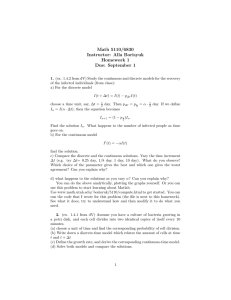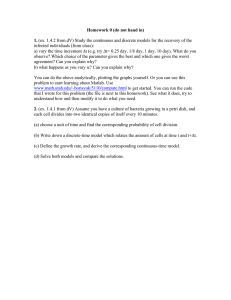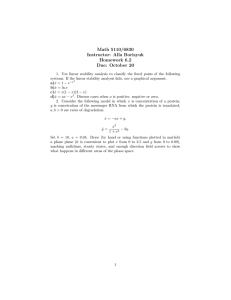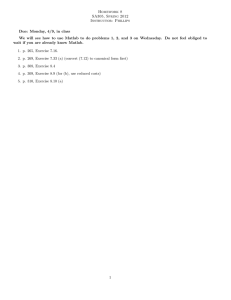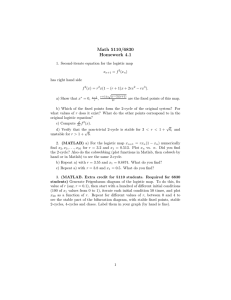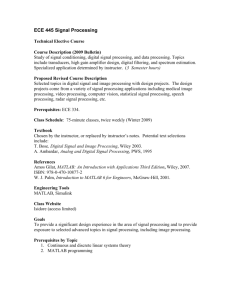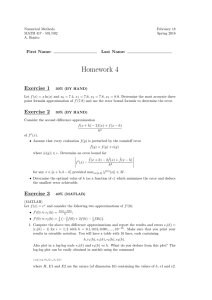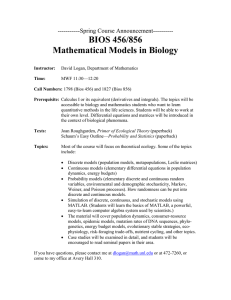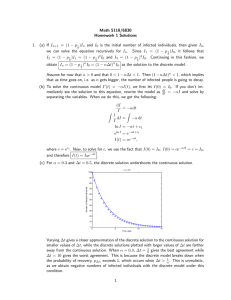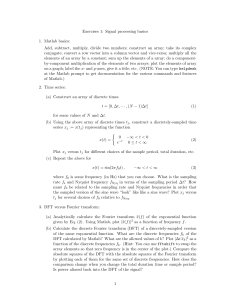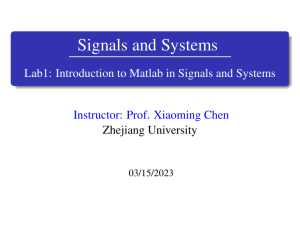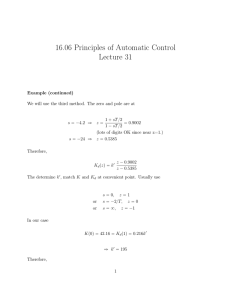Math 5110/6830 Homework 1
advertisement
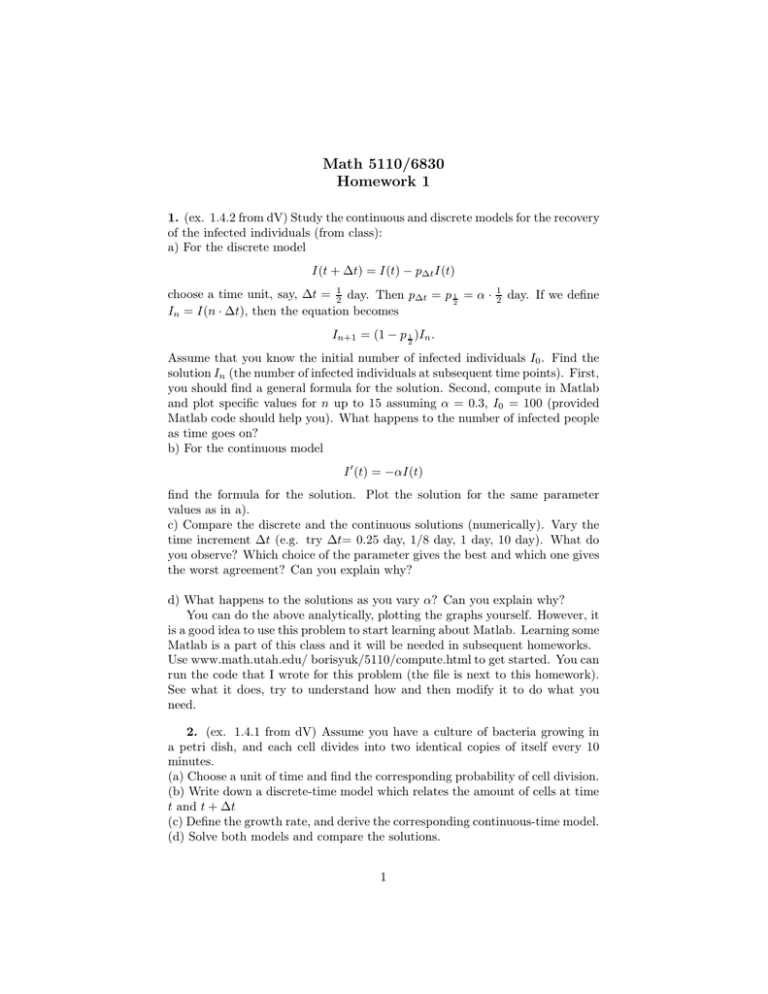
Math 5110/6830 Homework 1 1. (ex. 1.4.2 from dV) Study the continuous and discrete models for the recovery of the infected individuals (from class): a) For the discrete model I(t + ∆t) = I(t) − p∆t I(t) choose a time unit, say, ∆t = 21 day. Then p∆t = p 12 = α · In = I(n · ∆t), then the equation becomes 1 2 day. If we define In+1 = (1 − p 21 )In . Assume that you know the initial number of infected individuals I0 . Find the solution In (the number of infected individuals at subsequent time points). First, you should find a general formula for the solution. Second, compute in Matlab and plot specific values for n up to 15 assuming α = 0.3, I0 = 100 (provided Matlab code should help you). What happens to the number of infected people as time goes on? b) For the continuous model I ′ (t) = −αI(t) find the formula for the solution. Plot the solution for the same parameter values as in a). c) Compare the discrete and the continuous solutions (numerically). Vary the time increment ∆t (e.g. try ∆t= 0.25 day, 1/8 day, 1 day, 10 day). What do you observe? Which choice of the parameter gives the best and which one gives the worst agreement? Can you explain why? d) What happens to the solutions as you vary α? Can you explain why? You can do the above analytically, plotting the graphs yourself. However, it is a good idea to use this problem to start learning about Matlab. Learning some Matlab is a part of this class and it will be needed in subsequent homeworks. Use www.math.utah.edu/ borisyuk/5110/compute.html to get started. You can run the code that I wrote for this problem (the file is next to this homework). See what it does, try to understand how and then modify it to do what you need. 2. (ex. 1.4.1 from dV) Assume you have a culture of bacteria growing in a petri dish, and each cell divides into two identical copies of itself every 10 minutes. (a) Choose a unit of time and find the corresponding probability of cell division. (b) Write down a discrete-time model which relates the amount of cells at time t and t + ∆t (c) Define the growth rate, and derive the corresponding continuous-time model. (d) Solve both models and compare the solutions. 1
